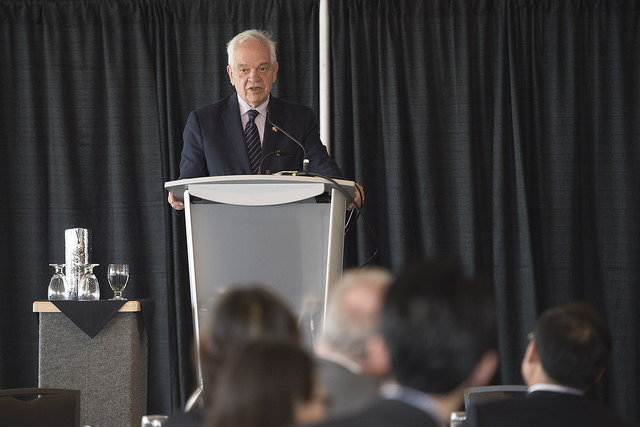On Saturday, January 26, Prime Minister Justin Trudeau fired his ambassador to China, John McCallum. Now, as Parliament resumes, the prime minister can expect some fairly harsh partisan attacks from his political rivals.
Trudeau had resisted calls to fire the ambassador after McCallum undiplomatically told a group of journalists he thought the case for extraditing Huawei executive Meng Wanzhou was weak.
McCallum apologized for that statement – but then spoke out again, this time expressing the hope that the U.S. would drop its case against Meng.
That was too much for the government.
It is one thing to try too hard to curry favour with the Chinese and, in so doing, undermine the independent Canadian judiciary. It is another to openly offend the Americans.
China is still holding two Canadians on vague charges. And it is still, officially, planning to execute another. That Canadian, Robert Schellenberg, has just appealed his death sentence for drug dealing.
For the time being, Canada will have no full-fledged ambassador to China. Career diplomat Jim Nickel, who had been McCallum’s second in command, takes over as chargé d’affaires, the top person when there is no accredited ambassador.
The opposition parties, especially the Conservatives, will try to make political hay out of all this, although politicizing a foreign policy imbroglio is not only unseemly, it could be dangerous. Conservative leader Andrew Scheer appears to think he can win points in a competition with Trudeau as to who’s most competent to manage foreign policy. Good luck with that.
Trudeau and Scheer agree on some foreign policy issues
On another foreign affairs front, that of the current conflict between Venezuelan president Nicolás Maduro and self-declared president, opposition leader Juan Guaido, Scheer and Trudeau are on the same page. They both refuse to recognize the legitimacy of Maduro’s recent re-election.
It is the NDP that is offside on Venezuela, although it does not have a clear, unified position. A number of NDPers, notably Manitoba MP Niki Ashton, have urged Canada to unequivocally support Maduro. But party leader Jagmeet Singh has tried to take a more nuanced approach. He has expressed the hope Venezuelans will figure things out for themselves, and he has pointedly refused to offer full-throated support to Venezuela’s beleaguered president.
Canada has interests in Venezuela; it is in our hemisphere and is a major supplier of oil and minerals. But there are no Canadian lives in immediate peril there.
China is a different story. Canada now finds itself uncomfortably astride a deepening rift between the U.S., Canada’s closest neighbour and biggest trading partner, and the world’s most populous country.
Canadians in China are at immediate risk because of this conflict. The most at risk are Schellenberg and the two who were recently incarcerated. But there are many others who could face danger.
It might be asking a lot, but Canadian politicians might think twice before turning Canada’s current differences with China into a matter of partisan dispute.
Politicians might all want to weigh their words very carefully before saying anything that could endanger the three Canadians at the eye of this political and diplomatic storm.
John McCallum: Photo courtesy Premier of Alberta/Flickr
Karl Nerenberg has been a journalist and filmmaker for more than 25 years. He is rabble’s politics reporter.
Help make rabble sustainable. Please consider supporting our work with a monthly donation. Support rabble.ca today for as little as $1 per month!



